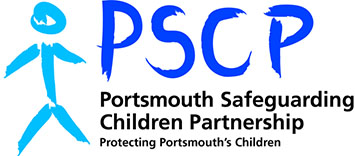Domestic Abuse and Violence
Domestic abuse is any incident of controlling, co-ercive, threatening behaviour, violence or abuse:
- between people aged over 16
- who are, or have been, intimate partners or family members
It can happen to anyone, regardless of age, social background, gender, religion, sexuality or ethnicity, and can begin at any stage of the relationship. Domestic abuse can be:
- psychological
- physical
- sexual
- financial
- emotional
Domestic abuse can also include forced marriage and so-called “honour crimes”.
It’s abuse if your partner or a family member:
- puts you down, or attempts to undermine your self-esteem
- controls you, for example by stopping you seeing your friends and family
- is jealous and possessive, such as being suspicious of your friendships and conversations
- frightens you
Domestic abuse and safeguarding children
Children who live in families where there is domestic abuse can suffer serious long-term emotional and psychological effects. Even if they are not physically harmed or do not witness acts of violence, they can pick up on the tensions and harmful interactions between adults.
What to do:
If you are a victim of domestic abuse visit Safer Portsmouth Partnership for further guidance and support options. If you are worried about a child living in a family where domestic abuse may be an issue go to: What to do if you’re worried about the safety of a child
Domestic Violence
The Domestic Violence, Crime and Victims Act 2004 defines domestic violence as ‘any incident of threatening behaviour, violence or abuse between adults who are, or have been intimate partners or family members, regardless of gender or sexual orientation.’
Types of domestic violence
- Physical: being hit
- Sexual: rape, sexual assault, degrading treatment
- Financial: having money withheld or being forbidden from getting a job
- Social: not being allowed to see friends and family or go out
- Psychological: constantly telling someone they are worthless and so reducing their self-esteem and confidence
- Emotional: telling a person their children will be taken from them if they leave or that no one else will love them
How does domestic violence affect children
Children will learn their behaviour from examples set by other people around them and exposure to domestic violence teaches children negative things about people and their relationships. For instance:
- It teaches them that violence is acceptable and that they can use it
- They learn how to keep secrets
- They learn to mistrust those close to them
Being exposed to domestic violence can have a long-lasting effect on children which could affect their ability to form relationships in the future, including:
- Blaming themselves for the violence
- Feeling frightened
- Becoming withdrawn
- Bedwetting
- Running away
- Aggressiveness
- Behavioural difficulties
- Problems with school
- Poor concentration
- Emotional turmoil
- Lack of respect
- Loss of self-confidence
Support services leaflets for information
Southern Domestic Abuse Service Leaflet
Who to contact
POLICE: 101 or in an emergency 999
CHILDLINE: 0800 11 11
NSPCC: 0808 800 5000
PARENTLINE: 0808 800 2222
NATIONAL DOMESTIC VIOLENCE HELPLINE: 0808 2000 247
Supporting documents
